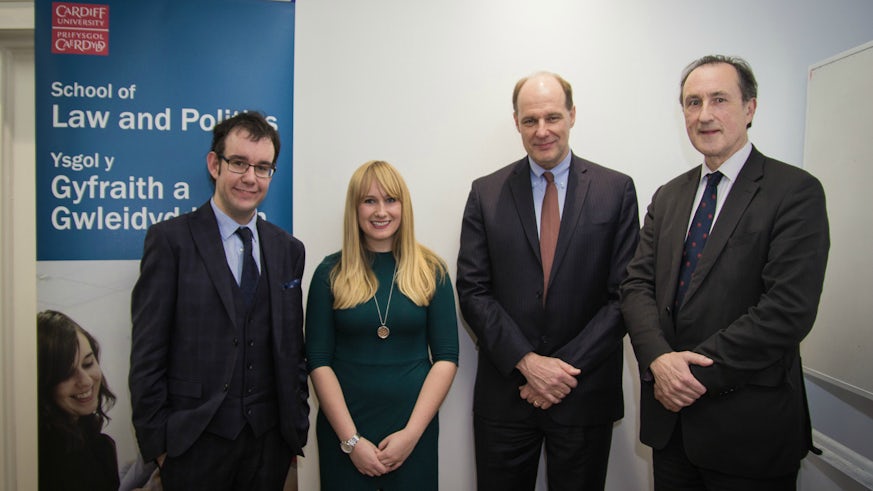Law and Religion
14 December 2016

Cardiff University has welcomed a leading legal scholar to deliver a keynote lecture on law and religion.
From Gospel to Law: Luther's Reformation of Law, Politics and Society and What it Means for us Today was given by Professor Witte Jr of Emory University.
A specialist in legal history, marriage law, and religious liberty, Professor Witte Jr has published 230 articles, 15 journal symposia, and 28 books. He is an award-winning teacher, distinguished scholar, and long-serving director of the Center for the Study of Law and Religion (CSLR), at Emory University School of Law.
In his lecture, Professor Witte Jr outlined the effects of the Reformation upon law and society, and explored how the ideas of Martin Luther – a 16th Century monk and Bible professor - continue to shape law today, especially in the context of marriage laws.
Dr Russell Sandberg, of the School of Law and Politics which hosted the event, said: “It was a pleasure to welcome Professor Witte Jr to Cardiff for a fascinating lecture which captivated the entire audience..."

"John is not only the world's leading authority in Law and Religion but has an international reputation for Legal History and Family Law - three areas which have long fascinated academics at the Law Department at Cardiff."
"2017 will see the 500th anniversary of the Reformation in Europe and will witness a number of talks and publications. It is good to see that Cardiff is ahead of the trend.”
As part of his visit, Professor Witte Jr launched the School’s new Law and History research group and attended an event to mark the publication of the book Law and History, edited by Professor Norman Doe, Professor of Law at Cardiff University, and Dr Russell Sandberg.
Dr Sandberg added: “The study of Legal History has gone out of fashion in UK law schools. Although excellent work is done, most of it is addressed solely to other legal historians. This is unfortunate. Legal History is too important to be the preserve of legal historians. Historical work on law needs to be accessible to all law students and academics. And lawyers need to work with historians so we can learn from one another.
“That is the goal of the new research group. At Cardiff, the study of Law and History will be subversive using a historical approach to question assumptions we have about the law. It will build upon but question earlier work and it will be interdisciplinary in nature leading to new collaborations and friendships.”
Share this story
Our interdisciplinary nature enhances our research environment and allows our staff and students to collaborate extensively.
